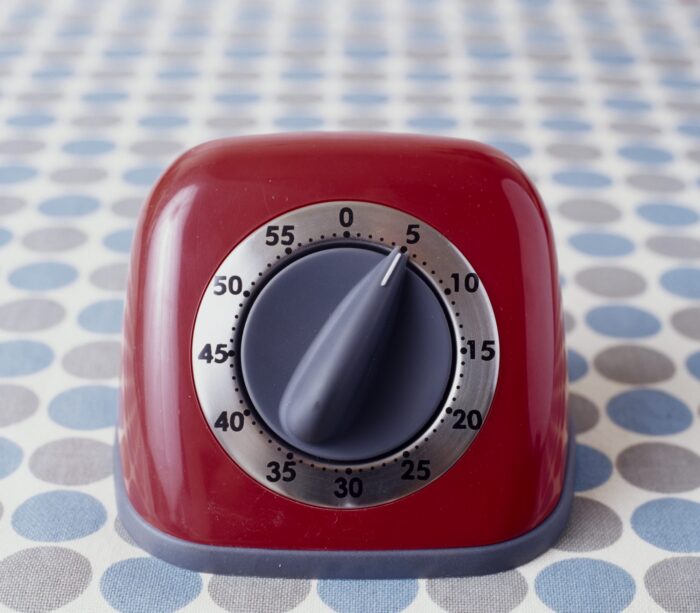
If you’re like most people, you probably find yourself struggling to keep up with everything on your to-do list. And when it comes to cooking, that can mean feeling stressed and overwhelmed in the kitchen. But don’t despair! Here are some tips on how to improve your time management in the kitchen, so you can get meals on the table with less hassle. From meal planning to batch cooking, read on for some great ideas that will help you save time in the kitchen.
Make a List of Things To Do in the Kitchen Each Day
A daily routine in the kitchen can make a world of difference in the way you manage your time and the level of cleanliness. To make the most of each day, it’s advisory to create a list of must-do tasks that need to be completed. This could include doing the dishes, wiping counters, taking out the trash, tidying up drawers and cupboards, mopping floors, as well as completing any necessary meal prepping. From here, you can prioritize them based on importance, urgency, or simply by task difficulty. Doing this can help ensure that chores are completed and your kitchen remains organized throughout the day.
Set a Timer for Tasks That Need to Be Completed
Setting a timer for tasks can be an effective way to stay on track. By setting an amount of time that needs to be dedicated to a task, you will remain focused and help manage the time spent both efficiently and effectively in order to get the job done. Additionally, end-of-task rewards can be incorporated into this practice as an incentive for staying on target within the established timeframe. There are loads of apps like ForoKD that can help you measure time and achieve your goals. With this method, tasks will become more manageable and it will prevent procrastination while providing motivation and satisfaction when the goals are reached.
Plan Meals in Advance
Planning meals ahead of time are one of the best ways to reduce stress in the kitchen and maximize efficiency. Familiarizing yourself with weekly menus, grocery shopping lists, and recipes will help save time and money.
Start by making a grocery list for the week including any herbs or spices you may need. Consider meals that use similar ingredients to minimize spending or trips to the store. Strategize dinners that can be made up quickly such as stir fry or a hearty soup with five-ingredient dishes such as creamy chicken, sausage and potatoes, or one-pan roasted salmon over garlic quinoa. Double your recipe portion when possible so you have leftovers for lunch later in the week. During quiet times such as weekend mornings, plan out meals for upcoming work days to save time during a weekday rush.
Focus On One Task at a Time
Juggling too many things at once can lead to a disastrous result; instead, it’s best to keep focused on one single task at any given time. While multi-tasking is certainly beneficial in certain scenarios, it’s important not to overload yourself with multiple tasks simultaneously. Not only will each task take longer due to being split between different activities, but you are also vastly increasing your chances of making mistakes. Prioritize and put your energy into one particular task and the benefits will be sure to follow – focus the mind and complete the job quickly and efficiently!
Delegate Tasks to Other Family Members or Roommates If Possible
Delegating tasks to family members and roommates is a great way to lighten the load. When everyone pulls their own weight, life around the house is much less stressful. A little bit of daily organization can go a long way toward harmony in the home; if key tasks are delegated among family or roommates, it can make all the difference in keeping things running smoothly. It might even free up time for leisure activities or a much-needed break once in a while! With proper communication and task delegation, households cannot only remain organized but also foster better relationships between their members.
Take Breaks When Needed
Taking breaks throughout the day helps us to refocus, replenish our energy and come back to our work refreshed. It’s important however to be mindful of how we use our breaks because if used unwisely they can ultimately take away from productivity. Without a plan in place, it’s easy to get sidetracked by other activities like checking social media or chatting with someone. To best utilize your breaks, decide what re-energizing activity you want to do before taking one – whether that means taking a walk, reading a book, or listening to music. Breaks should ideally be just enough time for you to reset without completely shifting your focus away from whatever you’re working on. With proper planning and discipline, those few minutes spent off task can really pay off in the end.
Reward Yourself for Completing Tasks on Time or Ahead of Schedule
Allocating a reward for yourself when you meet goals or complete tasks can be a great way to stay motivated and focused. Providing yourself with positive reinforcement in the form of a reward can help create better habits and keep you organized both mentally and physically. The rewards don’t have to be major items; they could be something small, such as giving yourself 10 extra minutes playing a video game, reading your favorite book, listening to music, or taking a break. Doing this allows achievements to become enjoyable while it also provides an incentive to tackle future tasks more effectively and efficiently.
Conclusion
With the right strategies, you can make meal times easier and more efficient. By following these tips for improving your time management in the kitchen, you’ll be able to get meals on the table faster and with less stress. Whether it’s by prepping ingredients ahead of time or using a slow cooker to prepare a meal while you’re away from home, there are plenty of options that will help you get dinner on the table without taking up all your time. With some practice and dedication, anyone can become an expert at managing their time in the kitchen!














